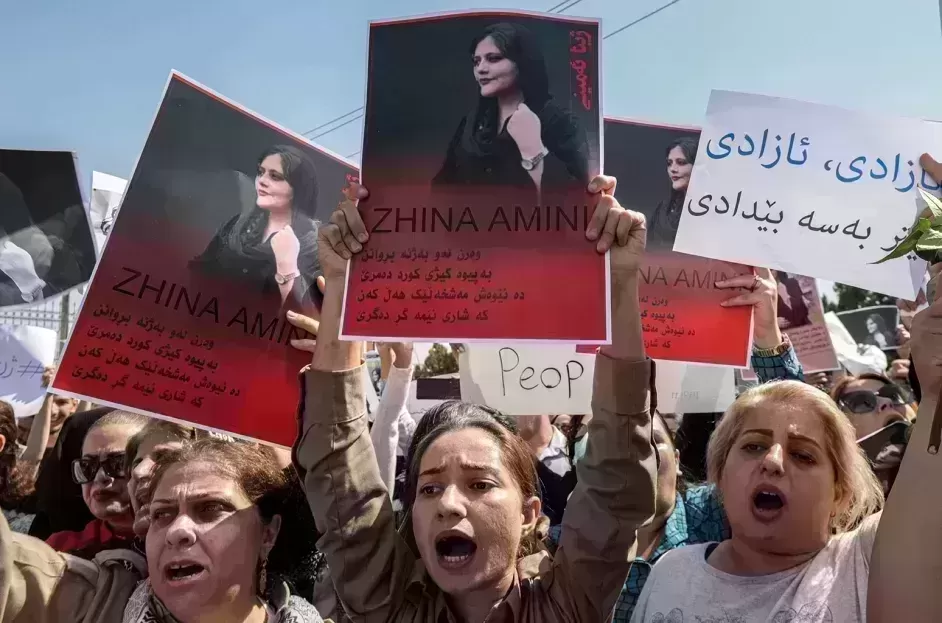
Iran plans to introduce tougher hijab law ahead of Mahsa Amini protests anniversary
text_fieldsTehran: Iranian authorities are set to introduce a new Bill on hijab-wearing that has raised concerns among experts for its harsh punitive measures.
The 70-article draft law includes proposals for longer prison terms for women who refuse to wear the veil, stricter penalties for celebrities and businesses violating the rules, and the use of artificial intelligence to identify women breaching the dress code, reported ANI.
The developments come just weeks before the first anniversary of major protests triggered by the death of Mahsa Amini. A 22-year-old Kurdish-Iranian woman died last September after being detained by the regime's morality police for not complying with the conservative dress code. While the morality police had seemingly receded after last year's protests, General Saeed Montazerolmahdi announced their return earlier this month, indicating that the authorities remain committed to enforcing the hijab rules.
The Bill serves as a reminder to Iranians that the regime remains steadfast in its stance on the hijab, despite the massive protests that occurred last year. The legislation was submitted by the judiciary for consideration earlier this year, then forwarded to the parliament and subsequently approved by the Legal and Judicial Commission. It is scheduled to be presented to the Board of Governors this Sunday before reaching the parliament floor, according to state-aligned news agency Mehr.
The hijab issue in Iran has long been contentious. It was initially banned in 1936 during Reza Shah's efforts to emancipate women, but the ban was lifted in 1941. However, in 1983, the hijab became mandatory following the Islamic Revolution of 1979.
The existing Islamic penal code, Article 368, prescribes penalties of 10 days to two months in prison or a fine of 50,000 to 500,000 Iranian rials (approximately USD 1.18 to USD 11.82) for violating the dress code. The new Bill seeks to escalate the punishment, imposing a five-to-ten-year prison sentence and a higher fine of up to 360 million Iranian rials (USD 8,508).
For many Iranians living below the poverty line, the hefty fine is an unaffordable burden. Hossein Raeesi, an Iranian human rights lawyer and adjunct professor at Carleton University in Ottawa, Canada, highlighted the severity of the financial penalty in a CNN report.
To enforce the proposed law, Iranian police are instructed to strengthen AI systems to identify individuals breaching the dress code using fixed and mobile cameras. Earlier this year, state media had reported plans to install cameras in public places to identify women violating the hijab law.
The Bill also targets business owners who fail to enforce the hijab requirement, subjecting them to higher fines amounting to potentially three months of their business profit and banning them from leaving the country or engaging in public or cyber activities for up to two years.

















